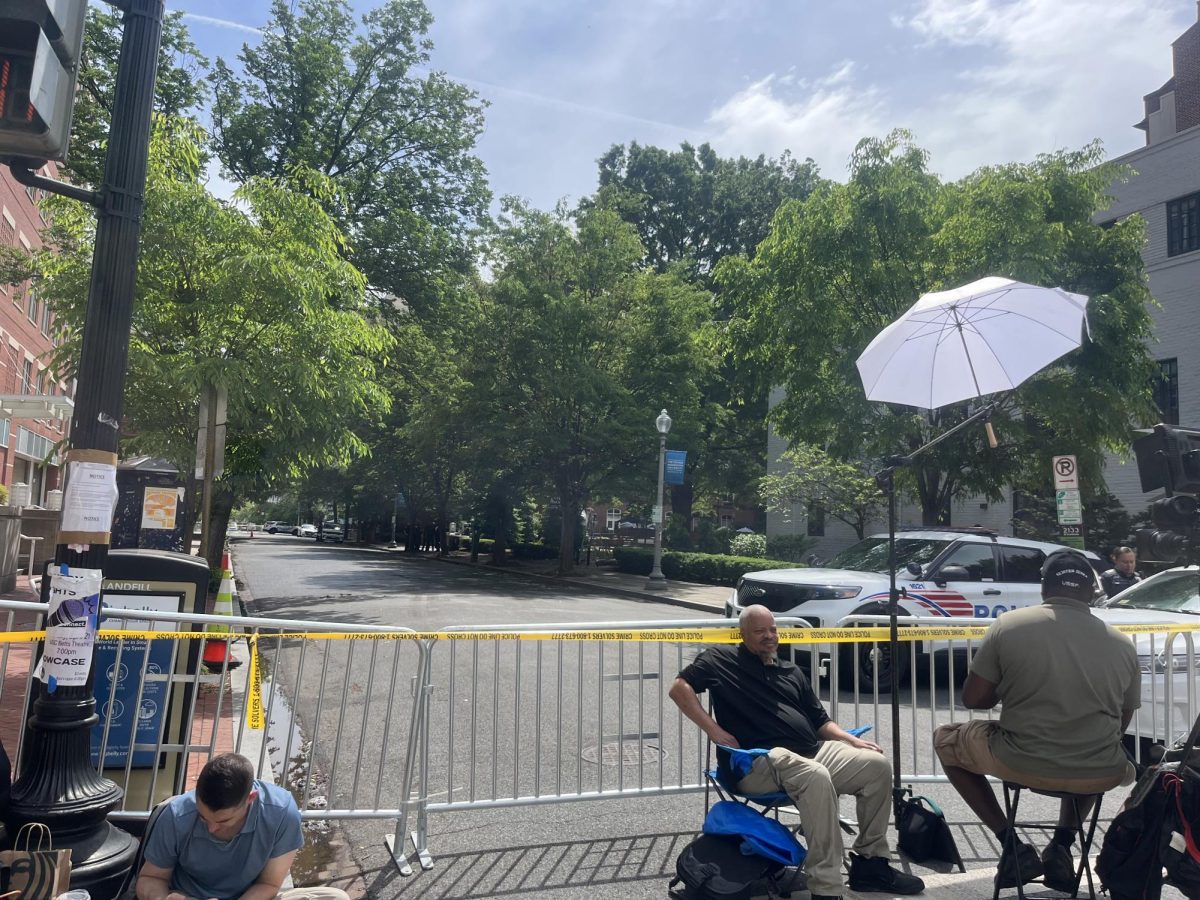Over 700 protestors gathered outside of the United States Supreme Court on April 22 as the nine justices heard oral arguments for City of Grants Pass v. Johnson, a case that will determine whether municipalities can issue tickets and fines to involuntarily unhoused individuals who sleep outside when there are insufficient shelter spaces available to them.
The rally was organized by the National Homelessness Law Center, an advocacy group that defends the rights of homeless people and promotes policies aimed at ending homelessness, and the National Coalition for the Homeless, a Washington, D.C.-based advocacy network devoted to ending homelessness and guaranteeing the dignity of homeless people, and featured numerous speakers from other local and national organizations working to end homelessness.
Grants Pass is a small city in southern Oregon where the homeless population — which is estimated to be between 500 and 600 people — exceeds the town’s shelter capacity. After facing $295 tickets, fines and jail time for breaking certain ordinances that criminalized sleeping outside, homeless people in Grants Pass filed a class action lawsuit against the city in 2018.
At the rally, Jesse Rabinowitz, who serves as the campaign and communication director at the National Homelessness Law Center, said the case carries implications of great magnitude for homeless individuals across the country since the justices are determining whether or not municipalities will be able to criminalize the act of sleeping outside.
“The highest court in America is asking the question: Does our constitution protect everybody, including people who are forced to live outside?” Rabinowitz said at the rally. “Just the fact that that is even a question shows how deeply we have failed our neighbors forced to live outside.”
“Every court that has heard this case agrees that throwing people in jail when they have no safe place to sleep is cruel and unusual punishment,” Rabinowitz added. “Let’s be clear. Grants Pass’ approach to homelessness: It’s extreme, it’s dangerous, it’s cruel and it will make homelessness worse.”
The case focuses on whether or not tickets and fines for sleeping outside violate the Eighth Amendment, which prohibits cruel and unusual punishment. An Oregon district court decided the case in favor of the homeless plaintiffs. After a series of appeals, the case has arrived at the Supreme Court. This is the first case the Supreme Court has heard focusing on the rights of homeless people in decades.
If the Supreme Court upholds the decisions of the lower courts and sides with Johnson, it will be deemed unlawful for local municipalities to essentially criminalize homelessness through ticketing and jail time. If the justices side with Grants Pass, overturning previous rulings, jurisdictions will be able to punish those who sleep outside even when sufficient shelter beds are unavailable.
Kathryn Monet, CEO of the National Coalition for Homeless Veterans, an organization committed to ending veteran homelessness through policy work and developing housing resources, said the number of homeless individuals decreases when local organizations are assisted by federal funds directed toward providing social support networks and housing.
“Veteran homelessness has in fact decreased by over 50% since 2010, showing us that solutions for homelessness exist, not just for veterans, but for everyone,” Monet said at the rally. “Here’s what works. We’ve seen increased federal investment and coordination. We’ve seen continued focus on housing-oriented solutions. We’ve seen enhanced employment services for homeless veterans. We’ve seen a lot of work done around inequities, and we’ve seen many other data-driven interventions result in progress in community after community across the country.”
In addition to featuring national advocates, local activists also spoke to the housing and homelessness crisis in D.C.
Dana White, advocacy director for Miriam’s Kitchen, a D.C.-based organization that works to end chronic homelessness by providing social and support services to homeless people in the District, said that D.C. is not equipped to support the needs of homeless individuals, especially if encampments are swept.
“In the coming weeks, the D.C. government and the National Park Service plan to evict encampments in and around Ward 2,” White said. “This will impact around 70 people. But here’s the thing: On any given night here in D.C. our local homelessness response system cannot guarantee 70 available shelter beds here in D.C.”
Georgetown University College Democrats (GUCD) said in a statement to The Hoya that criminalizing homelessness is not a solution to the crises at hand.
“Homelessness is not a crime, and it never should be,” GUCD wrote to The Hoya. “In light of Grants Pass v. Johnson before the Supreme Court, it is important to remember that closing the wage gap and funding affordable housing matter more than criminalizing individuals experiencing homelessness. Let’s make that clear: No one should be put behind bars for not having a roof over their head. GUCD encourages SCOTUS to protect the most vulnerable in our country in their decision.”
After over two hours of oral arguments — more than double the time allotted for the case — the court seemed divided along ideological lines with the majority of conservative justices leaning toward siding with Grants Pass. A decision is expected to be handed down in June or July.
Reflecting on the infrastructure within the District designed to support homeless populations, White lamented that the systems in place to distribute available resources often do not function at their maximum capacity, making it so that even the designated programs are underutilized.
“There’s underinvestment not only in truly affordable housing, but the programs that prevent and resolve homelessness,” White said. “There’s also administrative failure within local agencies to match people to the resources that they qualify for. Last year, of the 90 people who died on the streets here in D.C., over half of them had vouchers but were not matched to housing.”









